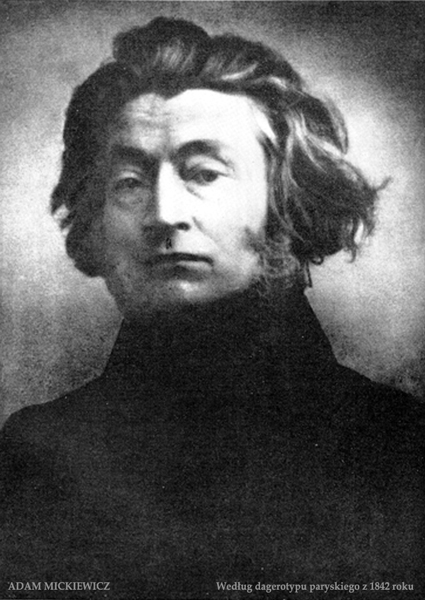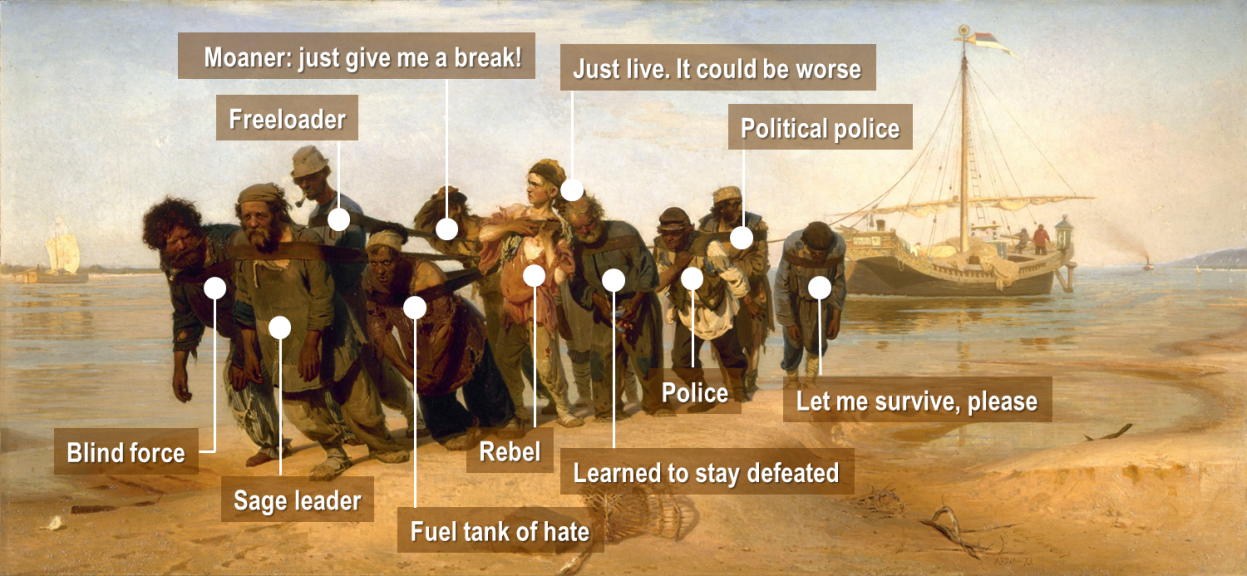(THIS ARTICLE IS MACHINE TRANSLATED by Google from Norwegian)
Some people think that philosophy makes things more complicated than they really are. Others claim that we do not know the nature of things, and that philosophy simply shows that things are more complicated than they appear. However, there are certain contexts where clarity is desirable, and for that reason I will begin with some definitions.
When we talk about 'the Russian world', we mean a concrete ideological doctrine and the corresponding actions of the Russian state. These became fully visible in 2014–2015, although they have occurred much longer in the political and cultural field – in latent form. Normally we place this new 'Russian world' in quotation marks, to distinguish it from its former meanings of 'cultural and economic support from Russians living outside Russia', and the more general one which can also include the beautiful utopia of a Russian culture without barriers, borders and states.
Post-imperialist resentment

Today's 'Russian world' is a brutal and aggressive form of neo-imperialism, which is primarily aimed at Russia's closest neighbours. But it also carries within it a general, 'geopolitical' vision of the world that suggests a future for humanity in which powerful leaders effectively divide resources and territories among themselves with impunity.
The basic conceptual feeling at the core of 'the Russian world' is post-imperialist resentment. When it surfaces, it is a sense of victimhood: "Why does no one love Russia?"; "Why does no one take Russia's interests into account?"; or "Why has Russia been forgotten?". Attempts to destabilize the world order are essentially a way of ushering Russia into a modern era, an era in which the country will also "have rights": the right to wage war. The right to lie. The right to kill and imprison dissenters. The right to cynically ignore public opinion. A new world where Russia "must be reckoned with".
Today's 'Russian world' is a brutal and aggressive form of neo-imperialism.
The resentment has been simmering for a long time. The symptoms have been visible since the latter half of the 1990s. However, the brutal and aggressive phase occurred so suddenly that it came as a shock to observers, both in Russia and in Europe. Not even now, almost ten years since Russia's annexation of Crimea, can I recall a single analysis in a Western European language that, rather than simply explaining what happened, and apportioning blame, has attempted to nuance the thinking behind the concept' the Russian world' – and to question what the new age with its cheerful postmodernism and considerably less cheerful post-communism has led to. A text with critical reflection on – and even a deconstruction of – imperialist thinking, and not just risk and impact analyses.

A Russian 'Empire'
The idea of an 'empire' first arises in the mind and in writing. Second, it begins to spread to politics and economics. An empire does not consist only of an army, secret services and administration of the colony. It also includes values, feelings and cultural codes. It is a view of the world that forces itself forward as something universal.
Neo-Marxism or postmodernism obviously cannot describe the new reality.
But in Europe's cultural space today, there is not only an absence of reflective texts about Russian imperialism – there are no places or channels where such reflection can take place. Nor can such critical thoughts be expressed in any language. This may seem strange: after all, we saw an overproduction of critical theory in the twentieth century. However, it is obvious that neo-Marxism, post-modernism – even the cynical reasoning of Sloterdijk or Žižek's 'Lacanism' – cannot describe the new reality that has emerged in the war between Russia and Ukraine and in the Belarusian revolution.
Only now are we able to be honest: to admit that we do not understand what is happening to us, or what kind of era we have just entered.
A perspective from which to see the future can be that of the Eastern European border countries. And the language with which we can describe the new era can be the language of Belarusian and Ukrainian post-colonial theory. It is this language that can shape and interpret the experience of colliding with empire. As well as the experience of surviving such a collision, defending our freedom of action and our inequality.
For this is what is surprising: although the empire has been incessantly in action for the past two centuries, the Eastern European borderland has not disappeared. It has not disappeared in the melting pot of the empire and the Soviet nation. On the contrary, it has grown stronger in its otherness. Today, the Eastern European borderland is not just a regional identity, but a real conceptual alternative to the 'Russian world'.
In his classic essay on the tragedy of Central Europe, Milan Kundera compared the Central European paradigm of "maximum variation within the minimum space" with the Soviet paradigm of "minimum variation within the limits of the maximum space". Addressing this difference, we can say that the Eastern European borderland is not only there to defend Ukraine. Or to support the Belarusian revolution. It is primarily there to defend diversity.
This is a war for diversity: a war between Central Europe and Eastern Europe.
Belarus
In Belarus, there is a long intellectual tradition of deconstructing its neighbor to the east. This tradition is encoded in the nation's underlying identity myths and can be said to have its beginnings at the same time as the 'Belarus project' itself. This was more than just a nation-building project combined with a significant social element (liberation of the Belarusian countryside). It was also an anti-colonialist project (social liberation is not possible without deconstructing the structures of imperialist oppression).

Polish Adam Mickiewicz (1809–1855) was the first – in the Eastern European borderland tradition – to write critically about the empire, primarily in the drama Forefathers' Eve, but also in The Books of The Polish Nation and in his journalism from the 1830s. Then came the play The Locals by Janka Kupala (pseudonym), a typical example of literary treatment of colonialist trauma. Kupala was followed by Ihnat Abdziralovič and Uladzimir Samojla, who elaborated the metaphysics of the Belarusian anti- and post-colonial image. Finally, we can mention Zianon Paźniak's classic essay On Russian Imperialism and Its Dangers – rather than the full range of analytical works on postcolonialism produced in the late 1990s. Eastern European borderland intellectuals continue to ask relevant questions and constantly offer new versions of answers to them.
Sometimes it seems that there is simply too much of this in the culture: that the primary task should be to "forget the empire" and eventually shift to a regime of normality – to remind ourselves that we are all in the same boat. But no sooner have intellectuals attempted to tackle this task than history takes a new turn, and once again we wake up in bed with the Empire at our side. In pain, we try to remember what happened, and struggle to understand how it will end this time.
Eastern European borderland intellectuals continue to ask pertinent questions.
The application of Western postcolonial theory in the Eastern European borderland was championed by the Ukrainian diaspora. In the early 1990s, the Australian literary theorist Marko Pavlyshyn and the American anthropologist Oksana Grabowicz showed that what Frantz Fanon, Edward Said and even Homi Bhabha said was also about us. But it is two Kyiv intellectuals, the novelist Oksana Zabuzhko and the political essayist Mykola Riabchuk, that we have to thank for the development of an East European borderland theory. They brought the theory out of the academic ghetto and transformed it into cultural politics. At the end of the 1990s, Ukraine was already conceptually prepared for a "post-imperialist situation".

Three Russian examples
In the Russian intellectual arena, the situation was less positive. For example, the publisher of the Russian translation of Edward Said's orientalism (2006) Russkij Mir Foundation. The preface made the reader aware of the fact that Said was Palestinian, that he criticized the West and was – if not an ally – then at least a "fellow traveller" of Russia. What was not mentioned in the preface is that Said's book had given rise to one of the most powerful and influential critical discourses on empire (all empires) to date.

Another example: In 2006, the Bolshoi Theater in St. Petersburg staged Brian Friel's play Translations. The Russian translator, Mikhail Stronin, however, translated the title as "Nuzhen perevod" ("Translation needed"). First performed in 1980 and studied in universities as a classic postcolonial work, Friel's play depicts the violence with which imperial power rewrites space and destroys the worlds in which its inhabitants live, as well as its geography and cultural tradition. It is impossible to imagine a more inadequate understanding of the play's purpose than "Translation necessary".
A third example is Alexander Etkind's book Internal Colonisation: Russia's Imperial Experience (2011). In the book, the author adapts the intellectual apparatus of postcolonial studies to the intellectual history of the Russian Empire. The post-colonial part a complete failure. The author starts from the premise that "Russia colonizes itself", marginalizing and suppressing not only any other conceptual point of view, but all the people and territories that were implicitly fortunate enough to be inside the empire.
What Franz Fanon, Edward Said and even Homi Bhabha said was also about us.
These three examples are important for understanding the Russian intellectual environment in recent decades. To me, they demonstrate one simple cultural logic, one simple pattern of thought. All three are stories of a non-meeting. Not only with Said, Friel and postcolonial studies, but also about a non-meeting with Russia's closest neighbours, Belarus and Ukraine.
All translated by Iril Kolle
Copyright Eurozine. MODERN TIMES is a member of this network.


